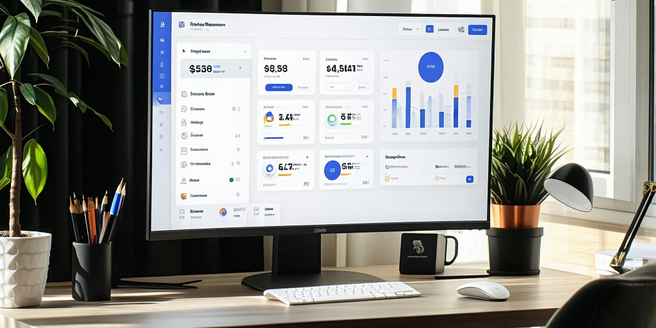
Understanding the Essential Remote Work Tools
To succeed in a remote work environment, it is crucial to understand the essential tools that facilitate productivity and communication. Key tools include project management platforms, which help track tasks and deadlines, and collaborative software that enables real-time editing and sharing of documents. Additionally, video conferencing tools are vital for maintaining face-to-face communication, while instant messaging applications allow for quick interactions. Familiarity with these tools not only eases daily tasks but also fosters efficient workflows. Regularly updating your skills in these areas ensures that you adapt to new technologies and keep pace with evolving remote work demands. Ensuring data security remains pivotal, so understanding the security features within these tools is also essential. A thorough comprehension of remote work tools can transform your remote work experience.
Mastering Communication in a Virtual Environment
Mastering communication in a virtual setting is fundamental to remote work success. Unlike face-to-face interactions, remote communication relies heavily on written and digital communication tools, making clarity and concision paramount. Utilize video conferencing to establish personal connections, and remember to check the nuances of your digital presence, such as tone and timing. Scheduled meetings should have clear agendas to keep discussions focused and productive. Furthermore, be proactive in providing feedback and asking questions to ensure all parties are on the same page. Utilize collaborative tools to keep everyone informed and to streamline communication processes. Regular check-ins help maintain team cohesion, prevent misunderstandings, and foster an inclusive workspace. Developing these communication skills will support a seamless transition to remote work and create effective team dynamics.
Time Management Strategies for Remote Workers
Effective time management is crucial for remote workers to maintain productivity and balance. Start by setting a structured schedule, establishing consistent start and end times to create a steady workflow. Prioritize tasks by importance and urgency, and consider using digital to-do lists or time management apps to track progress. Break down larger projects into manageable tasks and set realistic deadlines to avoid feeling overwhelmed. Incorporate regular breaks into your routine to maintain focus and prevent burnout. Additionally, identify and minimize distractions by creating a dedicated workspace and implementing boundaries with family or roommates. Reflect on your productivity patterns and adjust your schedule to align with peak performance times. These strategies will enhance your efficiency and help maintain a healthy work-life balance, essential for thriving in a remote work setting.
Enhancing Digital Collaboration Skills
Enhancing digital collaboration skills is essential for any remote worker. Start by familiarizing yourself with the various collaboration tools at your disposal, such as document sharing platforms, project management software, and communication apps. Understanding their features allows you to choose the right tool for specific tasks, improving efficiency. Next, make sure to update your digital etiquette, as clear and respectful communication is vital in a virtual environment. Be proactive in seeking feedback and encourage open discussions among team members to foster a culture of collaboration. Finally, adaptability is key. Stay informed about emerging technologies that could enhance team collaboration and be open to integrating them into your workflow. By honing these skills, you not only contribute positively to your team but also ensure personal growth in your remote work journey.
Building a Productive Remote Work Routine
Building a productive remote work routine requires intentional planning and discipline. Begin by designing a dedicated workspace free from distractions, equipped with all necessary tools and technology. Establish clear working hours to create boundaries between professional and personal time. Prioritize your tasks daily to focus on what truly matters, and set specific goals to track progress. Incorporate short breaks to boost productivity and avoid burnout. Mindfulness practices, such as starting your day with a brief meditation or exercise routine, can enhance concentration and reduce stress. Regularly evaluate your routine, making adjustments as needed to improve efficiency. Engage in continuous learning and skill development to stay motivated and adaptive. By committing to a well-structured routine, you build resilience and foster a thriving remote work experience.
